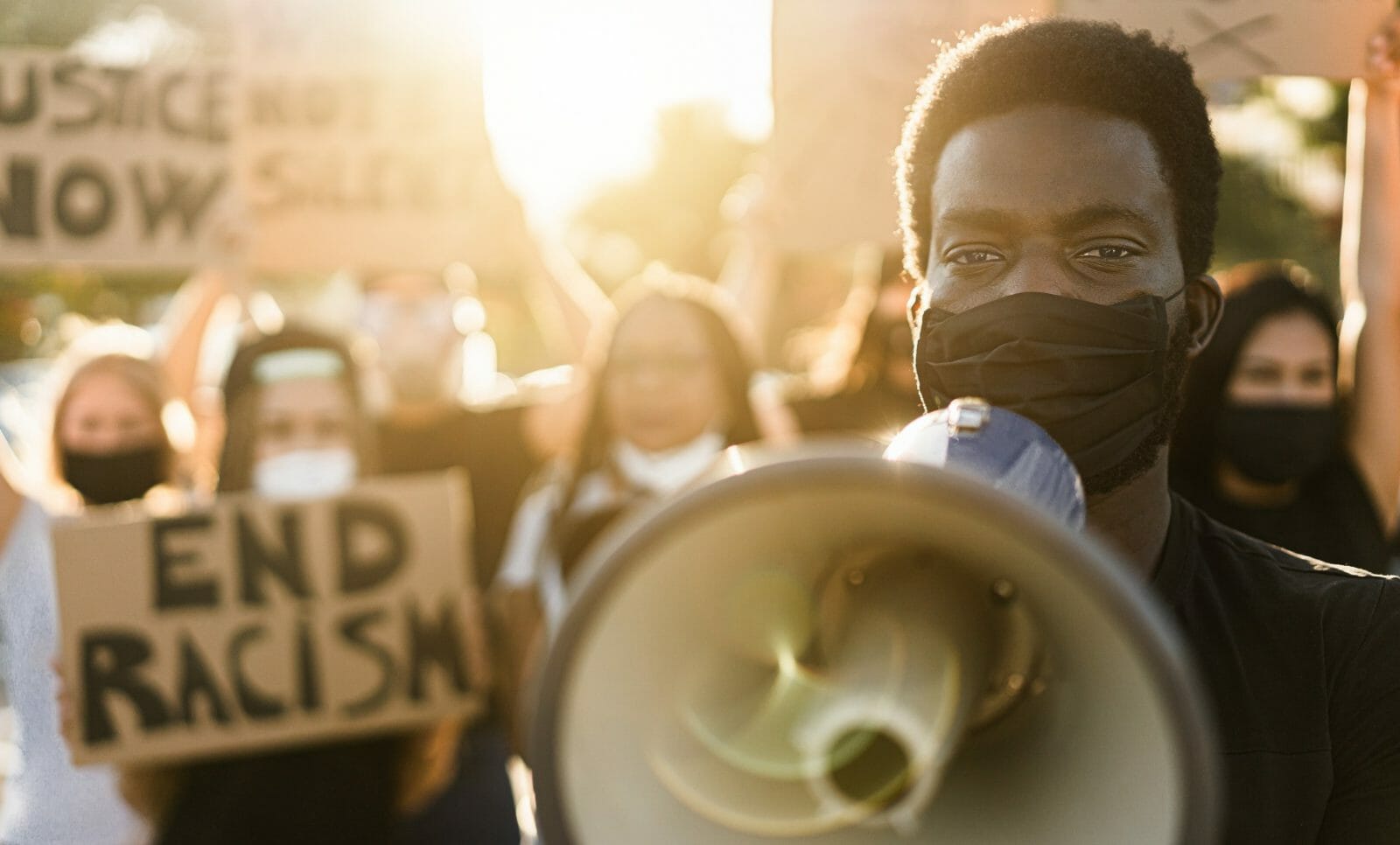4 Ways You Can Drive Change for Social Justice and Equity

As the global movement for social justice gains momentum, individuals, corporations and nonprofits are looking for ways to take a more active role. Many recognize that not taking action is, by default, allowing racially biased systems to remain in place. It is important that we all find ways to take meaningful actions that support efforts to dismantle policies and institutions that unfairly discriminate against BIPOC (Black, Indigenous, and People of Color) individuals and communities.
Launched in November 2020, Listen. Learn. Act to End Racism is a partnership between Points of Light and Morehouse College that offers a series of conversations with social justice experts as well as curated resources for people to learn from.
Drawing from the conversation series and the resources gathered for this initiative, here are four ways you can challenge existing systems and actively promote social justice and equity.
- Learn about the history of racism and the work already underway to end it.
Change always starts with the individual identifying, challenging and transforming their own beliefs. That journey can begin with learning about the history of racism and doing research on how our society has sustained it and what work is being done to end it. Learning will help you identify blind spots in your own life.
As you reflect on racism — both subtle and overt — examine whether there is a lack of diversity in your own spheres of influence, like your friends, your workplace, the media you engage with, and even in your community. Identify areas of privilege and unconscious bias in your own life.
- Become an ally: Seek out BIPOC organizations and businesses.
Recognizing that systemic racism is a product of design is a truth that offers hope because anything that’s been designed can also be redesigned. It is up to us to validate that truth and do the work to redesign the system. You can start with small steps such as seeking out BIPOC owned organizations and businesses to contract with through your work and to shop with in your personal life.
You can also help fill the persistent resource gaps and accessibility barriers in your own community by supporting local organizations that are increasing access to resources for BIPOC folks.
- Become an ally: use your voice to help others learn.
Eliminating racism requires conversations, often difficult ones. Using your voice as an ally can help people who you know in their journey to listen and learn. You can start at your own dinner table with family and friends by talking about what you are learning.
As you begin to see more real-life examples of unconscious bias, you can also use your voice to help others recognize them. Remember that unconscious bias can show up as microaggressions. These verbal and nonverbal slights and insults demean and invalidate a person and perpetuate culturally marginalized groups being seen as outsiders. Continue to hone your awareness of the presence of microaggressions in your day-to-day life.
When using your voice to recognize unconscious bias, keep in mind that the most effective approach is not to “call out” an individual but rather to call them up. Gently pointing out the microaggression, asking the person some thoughtful questions and offering resources is a good start. If the issue happens in the workplace, you can go to someone in a leadership position with proposed solutions, like having a company-wide training on microaggressions or distributing literature via an email newsletter.
- Use the Civic Circle to help leverage your powers to drive change.
Racism shows up in many systems – from education to the workplace and from the justice system to healthcare . There is so much work to be done, and no one person can do it all. But what we each can do is pick an issue area that we feel deeply about and then use the Points of Light Civic Circle to create lasting, meaningful change in that particular area.
For example, if your passion is education, have you used your voice to advocate for better access for all kids? Have you donated to a nonprofit whose mission is focused on equity in education? Have you thought about running for the school board or volunteering ? The Civic Circle is your system for changing systems – offering so many ways to take action to address the root cause of inequity.
Finally, as you take any or all of these actions, it is important to always listen to the lived experiences of BIPOC individuals. Systemic change involves honoring and supporting people who are different from us or who have been given far fewer resources and opportunities than we have. Action grows through discourse, and creating spaces that allow for this discourse can help reform our society one conversation at a time. We can learn from civic leaders and activists on the frontline of change in two of the most pivotal social justice movements of our time.
If you value inclusivity, diversity, and equality, and want to stand with people who are taking action for a more just and equitable world – every action you take will matter. The important thing is to take the first step.
To learn more about organizations, movements and communities working to end racism and get additional action steps you can take, visit our Listen. Learn. Act to End Racism resource library here.
